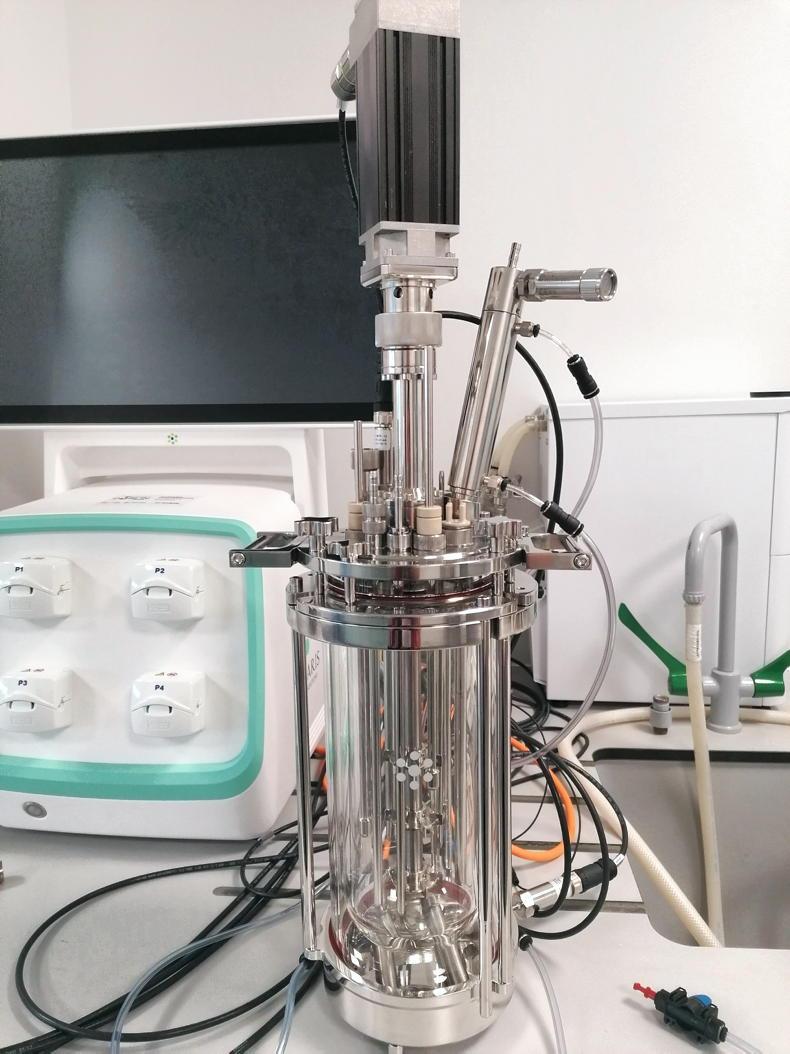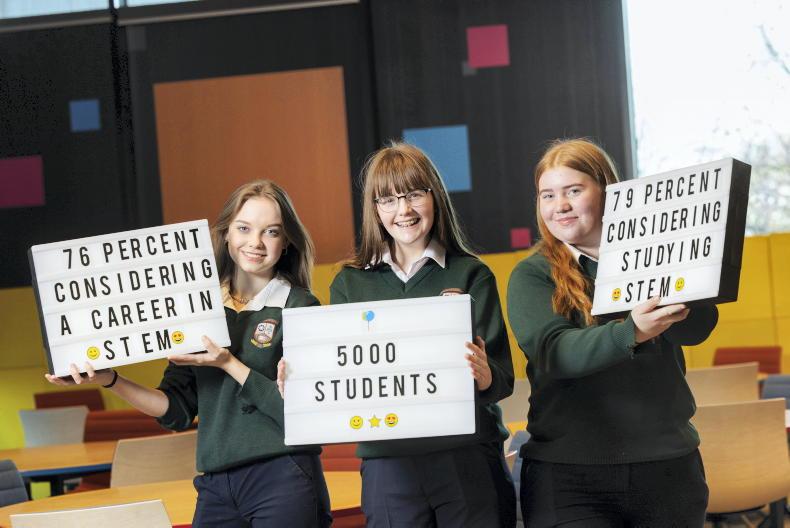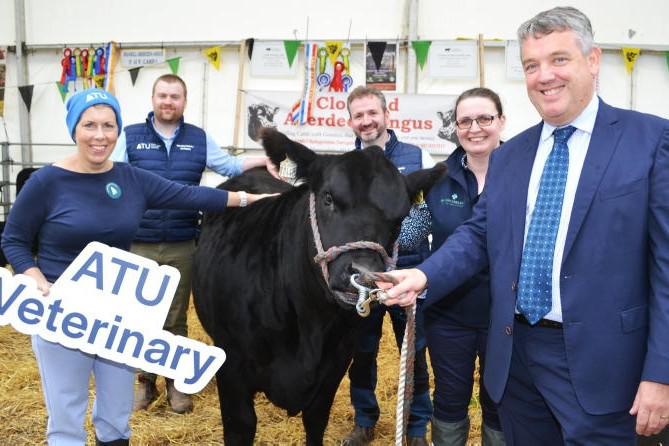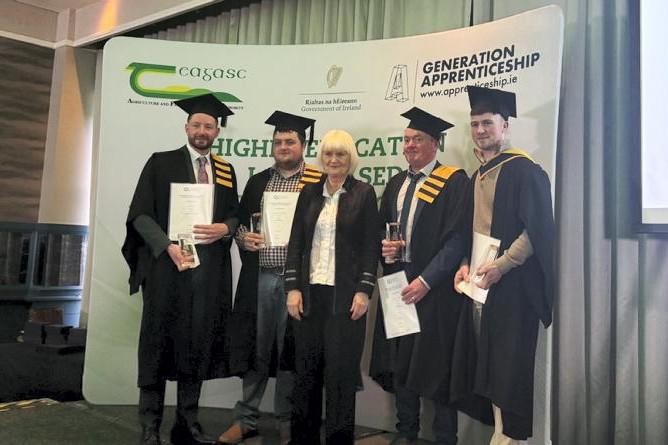Biotechnology describes how we can gain understanding of biological processes and explores how they can be exploited for beneficial and commercial purposes. It is a dynamic field that combines biology, chemistry, genetics, and engineering to drive innovation and address global challenges.
On this year’s CAO, students can now apply to the new four-year Level 8, Bachelor of Science honours degree in Biotechnology at Technological University (TU) Dublin, under the code TU889.

Bioreactor, used in the Technological University Dublin labs.
The course
The course was developed as a result of industry needs and a demand in the market, according to Dr Gemma Kinsella, head of food science and industrial biotechnology.
“Biotechnology is a growing area, in terms of the global market,” says Gemma. “There’s a lot of industrial need to develop new products, new technologies, new processes and new microorganisms.

Dr Gemma Kinsella, head of food science and industrial biotechnology.
“We’re trying to produce an industry- ready graduate to meet these challenges, to hit the ground running on developing technologies and products.”
The programme is structured to equip students with the foundations in biological sciences, bioprocessing and bioeconomy.
“Students will get a flavour of different industrial applications of biotechnology, which includes agri-food and agricultural biotechnology, but also biopharmaceutical and environmental applications,” she says.
Entry requirements
As this is a new course, it is hard to know what points will be required for students hoping to secure their place. The known entry requirements can be viewed on the TU Dublin website; see tudublin.ie.
About the course
There is a maximum of 32 places on offer in the intake of the course for September, which will be ran on the TU Dublin, Grangegorman campus.
Students can choose to study abroad for a semester or a year, where they will undertake a work placement or project.
Some of the modules across the four years include:
•(Bio)Pharmaceutical industry regulatory affairs
•Structural biochemistry for food and pharmaceuticals
•Biochemical transformations
•Molecular biotechnology
•Computational biotechnology
•Advanced analysis techniques for food, beverage, biopharma
•Immunology and diagnostics
A unique aspect to this course is it is run through the School of Food Science and Environmental Health, which as a result leverages the environmental and agri-food piece.
“The bioeconomy is an emerging area. From a global market point of view, it is expected to double in the next five years
in terms of the market and industrial involvement, so it is a really interesting area for students to get involved in,” says Gemma.
Read more
CAFRE to host information evening on apprenticeships
Finding a balance in agribusiness
Biotechnology describes how we can gain understanding of biological processes and explores how they can be exploited for beneficial and commercial purposes. It is a dynamic field that combines biology, chemistry, genetics, and engineering to drive innovation and address global challenges.
On this year’s CAO, students can now apply to the new four-year Level 8, Bachelor of Science honours degree in Biotechnology at Technological University (TU) Dublin, under the code TU889.

Bioreactor, used in the Technological University Dublin labs.
The course
The course was developed as a result of industry needs and a demand in the market, according to Dr Gemma Kinsella, head of food science and industrial biotechnology.
“Biotechnology is a growing area, in terms of the global market,” says Gemma. “There’s a lot of industrial need to develop new products, new technologies, new processes and new microorganisms.

Dr Gemma Kinsella, head of food science and industrial biotechnology.
“We’re trying to produce an industry- ready graduate to meet these challenges, to hit the ground running on developing technologies and products.”
The programme is structured to equip students with the foundations in biological sciences, bioprocessing and bioeconomy.
“Students will get a flavour of different industrial applications of biotechnology, which includes agri-food and agricultural biotechnology, but also biopharmaceutical and environmental applications,” she says.
Entry requirements
As this is a new course, it is hard to know what points will be required for students hoping to secure their place. The known entry requirements can be viewed on the TU Dublin website; see tudublin.ie.
About the course
There is a maximum of 32 places on offer in the intake of the course for September, which will be ran on the TU Dublin, Grangegorman campus.
Students can choose to study abroad for a semester or a year, where they will undertake a work placement or project.
Some of the modules across the four years include:
•(Bio)Pharmaceutical industry regulatory affairs
•Structural biochemistry for food and pharmaceuticals
•Biochemical transformations
•Molecular biotechnology
•Computational biotechnology
•Advanced analysis techniques for food, beverage, biopharma
•Immunology and diagnostics
A unique aspect to this course is it is run through the School of Food Science and Environmental Health, which as a result leverages the environmental and agri-food piece.
“The bioeconomy is an emerging area. From a global market point of view, it is expected to double in the next five years
in terms of the market and industrial involvement, so it is a really interesting area for students to get involved in,” says Gemma.
Read more
CAFRE to host information evening on apprenticeships
Finding a balance in agribusiness











SHARING OPTIONS